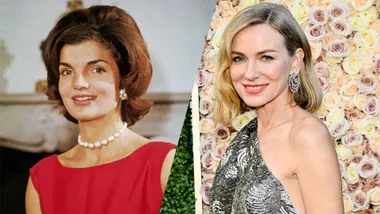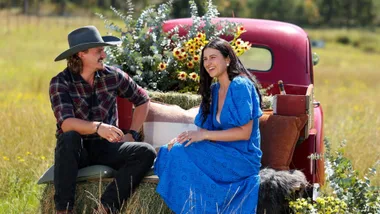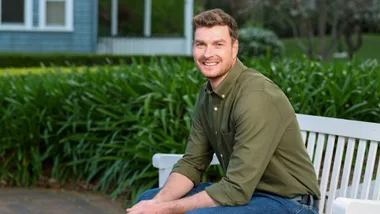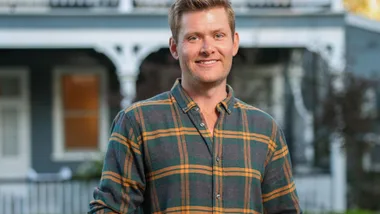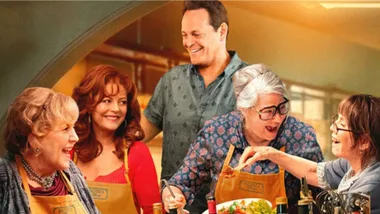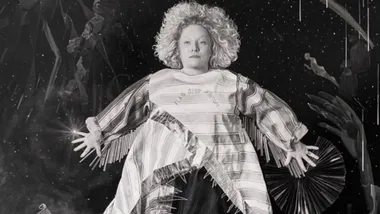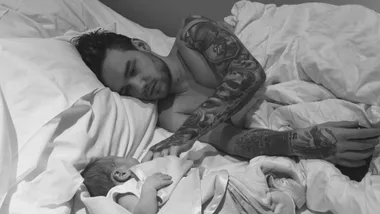“I can’t even get a full day in bed, so I don’t know how Hannah [Neeleman] is getting a full week in bed. But, it’s not because her abusive husband isn’t allowing her to have any help or rest,” says Sophie Zee, an author, stay-at-home mother, and child development specialist who provides caregiving advice to her 18.4k followers on TikTok under the handle @schoolpsych.mom. “If she can take a whole week off in bed, she probably has some support to do that,” she adds.
Zee is talking about the now famous (or infamous) Ballerina Farm article published in The Times last week.
She is one of a growing number who have criticised the discourse spurred by the profile of Hannah Neeleman, aka Ballerina Farm. The slow-burn backlash has centred around two things: allegations of journalistic bias and annoyance about the ease with which the public has condemned the Neelemans as parents and partners.
Journalistic Bias In The Ballerina Farm Article:
In the first video Sophie Zee posted (she has since posted five more), she described herself as “getting the ick” from Agnew’s portrayal of Ballerina Farm’s life. She says that while, in her view, Agnew attempts to portray herself as “a feminist trying to protect Hannah”, she feels she has not protected her at all. “She is victimising her and trying to twist her words and her life into something that will sensationalise her article and make it a hit piece.”
By Zee’s fifth video in the series, things have heated up. She points to a podcast The Times released a week before the first article was published.
In it, the full statement attached to Hannah’s much-quoted line, ” You give up a piece of yourself” is played. This sentence fragment has been pointed to again and again as a sign of her reluctance to give up her life as a ballerina.
Hannah’s full comment, as played on the podcast, is: “You give up a piece of yourself. I don’t think I would change it. Daniel was like, ‘If you want to dance, go dance. ‘ I’m open to anything, but I knew deep down I wanted to raise my babies.”
The fact that, according to Hannah, her husband was open to her continuing ballet was left out of the original article. Zee feels this is significant as the subject of Hannah’s seemingly forced withdrawal from the prestigious ballet academy Juilliard has been central to the negative discourse around the couple since the article.
Zee points out that other comments played on the podcast appear to contradict the portrait of an unhappy and unsupported mother of eight readers of The Times were left with.
One piece of audio features Hannah Neeleman saying: “I don’t think I’m at home raising kids by myself. It gets hard. Women need support, and when Daniel said, ‘Okay, let’s build something together,’ we really carried the mantel together.”
This more uplifting tone was reinforced by a follow-up piece written by Megan Agnew, in which the journalist reflected on lessons learned during her time with the Neeleman and the response to the article.
Agnew described Neeleman as “just as calm as she appears online” and “bright and sweet” in her responses about parenting and family life.
Comments on the video were highly critical, with followers calling Angnew’s seemingly selective treatment of Neeleman’s comments “diabolical.” Another commenter said, “Yes, she infantilized a grown woman for not living the kind of life that is acceptable for Megan Agnew.” Neither Agnew nor The Times has commented on the reporting process so far or criticism, of their approach.
Why Are We So Happy To Judge Stay-At-Home Mums?
Watch on TikTok
The second theme is broader anger from mothers who question why a journalist with no children herself felt entitled to comment on Neeleman’s approach to parenting, along with the efforts of the audience and reporter to understand Neeleman’s choices and life.
“As a stay-at-home mom myself, I feel like the journalist doesn’t have kids or has never been a stay-at-home mum herself.” Zee points to some of Agnew’s interpretations of motherhood. She used as an example Agnew, seemingly finding it “weird” that Hannah Neeleman held her newborn for the duration of their interview. This, Zee says, is “one of the basic things you see as a mum, your baby wanting to be held by you.”
Agnew acknowledged this in the follow-up piece: “In recent days, there has been criticism that I, childless, unmarried women, didn’t understand that this is the reality of having eight children, all home-schooled. And with no childcare,” but she added, “But I felt the exact opposite when I was there. It made me understand exactly how it was to be a woman with eight children and no childcare: demanding, rewarding, and gloriously intimate and difficult to find space in.”
To Zee, this seems retrospective, given the tone of the original piece and a step she says is “gaslighting.” She also finds it outrageous that Agnew could presume to “know” what it’s like to have eight children on a farm without childcare. “How dare she? You don’t even understand what it’s like to have one kid.”
While many commenters pointed out a lot of the information revealed in the article was genuinely alarming, a consistent sentiment was frustration that there wasn’t an attempt to understand Neeleman’s life as a mother. Ironically, this flattened Hannah into the role of a subservient wife despite her and her husband’s assertions that they were “co-CEOs” in their company and marriage (according to Dun & Bradstreet Ballerina Farm L.L.C is registered in Daniel David Neeleman’s name, not Hannah’s).
One commenter wrote: “Megan Agnew reduced who Hannah was as a woman because being a mother is not enough for her feminist agenda.” Another shared, “I’ve been both a SAHM (stay-at-home mother) and a working mom, and there is definitely fear of judgement from women who don’t make the same choice you do. But what most women with children understand is we’re all just doing our best.”
Another frustrated viewer wrote, “I’m a SAHM. I get so many comments from ppl who reduce me to less.”
A male commentator added: “It was only ever about the journalist and what she wanted to say and nothing about observing someone else’s life and worldview and figuring out what it tells her.”
The Missing Piece:
Watch on TikTok
Cultural critic Caro Claire Burke, who has posted extensively about traditional wives, picked up on this final point. Responding to a now-deleted video, she asked, “Do Mormon traditional wife influencers deserve our empathy?”
In the post she responds to the suggestion that “no one should feel bad for Ballerina Farm.” She says people are missing the mark when they don’t factor in the role Mormonism plays in the Neelemans’ lifestyle. Burke goes on to expand on the issue of fundamentalism and Mormonism in traditional wife circles, something that affects the concept of “free will” as those in secular communities understand it.
But her initial statement that influencers don’t deserve our empathy seems applicable to the backlash from mothers on TikTok.
We tune into influencers for entertainment, but if there’s anything the concern spurred by the Neeleman article proves, it’s that these influencers often live lives not dissimilar to those in our communities.
Freedom to comment on Hannah Neeleman’s choices as a parent without effort to understand the context behind those choices is attached more broadly to the freedom we feel to comment on the way mother’s parent full stop. And those mothers are sick of it.
Related Articles:
- 9 Moments From The ‘Ballerina Farm’ Interview That Have Us Rethinking Trad Wife Content
- Is Ballerina Farm Making A (Quiet) Rebuttal?
- JD Vance Thinks Women Should Stay In The Kitchen, His Wife Is A Yale Law Graduate
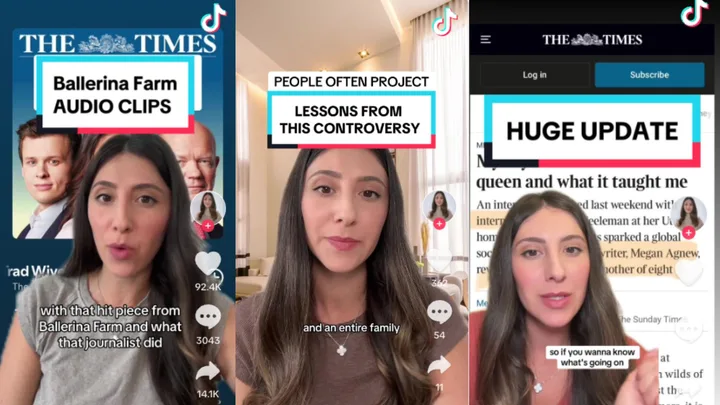 TikTok: @schoolpsych.mom
TikTok: @schoolpsych.mom
